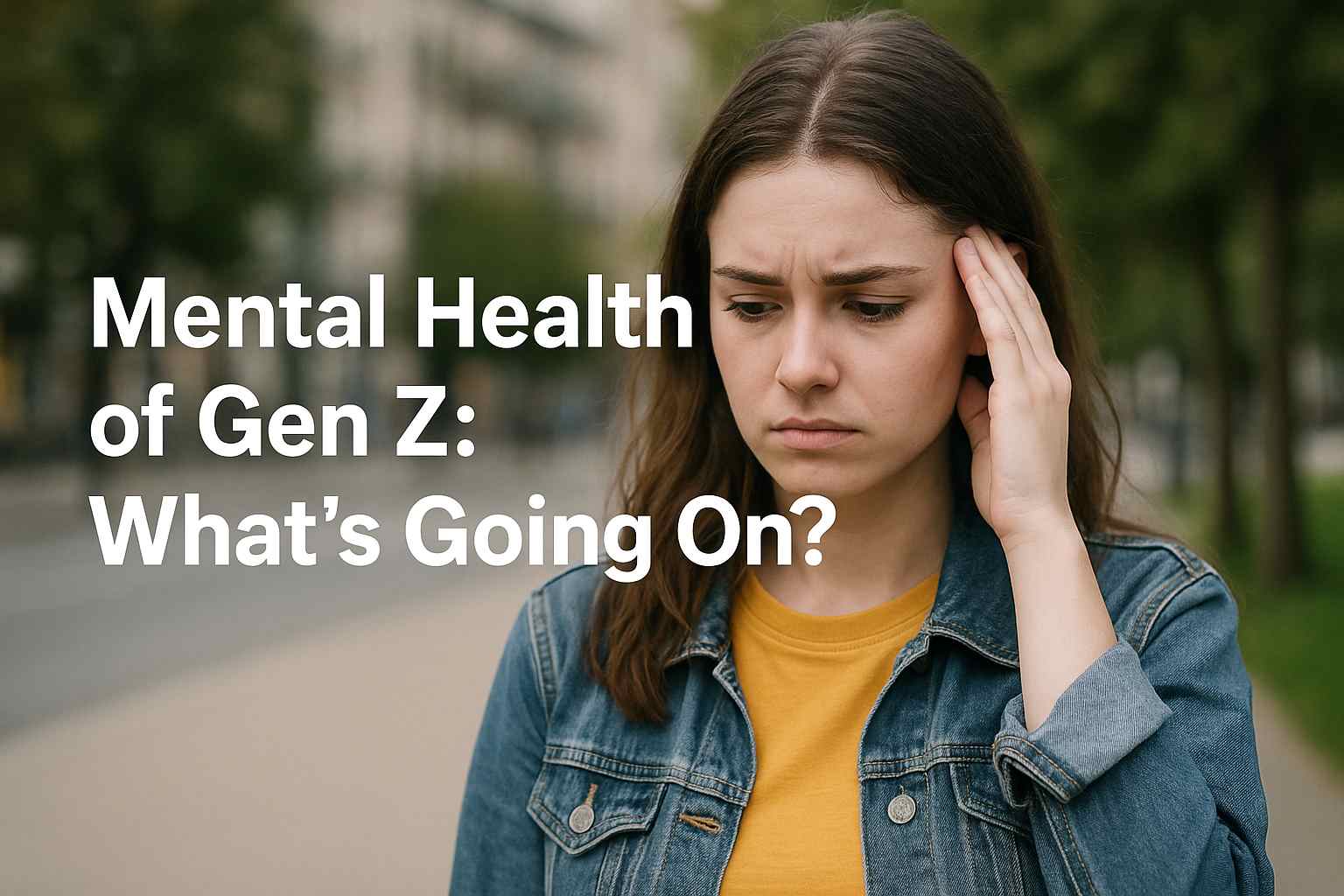Gen Z (born between 1997 and 2012) is growing up in a world that moves fast, full of social media, pressure to succeed, global crises, and constant change. While they’re the most tech-savvy and open-minded generation, they’re also facing serious mental health challenges.
Key Takeaways:
- Gen Z feels stress from school, social media, and world events.
- They talk openly about mental health and therapy.
- Anxiety and burnout are common.
- Support at home and school helps.
- They can stay strong with the right tools.
Who Is Gen Z?
Gen Z includes people who are currently between 12 and 27 years old. They are digital natives who have never known a world without smartphones, social media, or instant access to information. They’re highly educated, diverse, and passionate about social issues.
However, they’re also under a lot of pressure, academic stress, job insecurity, climate change, and online comparison all affect their mental well-being. Unlike earlier generations, Gen Z is more likely to talk about their struggles, seek help, and use online resources for mental health.
Why Is Gen Z More Stressed Than Ever?
Several factors are affecting Gen Z’s mental health. Unlike past generations, they grew up with smartphones, experienced a global pandemic in their teens, and face nonstop comparison online.
Key reasons include:
- Social Media Pressure – Always being online can lead to anxiety, low self-esteem, and fear of missing out (FOMO).
- Academic and Career Stress – Competition is higher, and many feel pressure to succeed early.
- Economic Uncertainty – Rising costs, student debt, and job insecurity create financial stress.
- Global Crises – Climate change, political unrest, and the pandemic have added emotional weight.
- Loneliness – Even with all the digital connections, many Gen Z teens feel isolated in real life.
Did you know? According to the American Psychological Association (APA), 91% of Gen Z adults said they experienced at least one physical or emotional symptom due to stress in the past year.
Common Mental Health Issues in Gen Z
Here are some of the most common mental health struggles faced by Gen Z today:
Signs That a Gen Z Individual Might Be Struggling
Not all struggles are visible. But these signs may show someone needs help:
- Pulling away from friends or family
- Losing interest in activities they once enjoyed
- Feeling hopeless or tired all the time
- Changes in eating or sleeping habits
- Difficulty focusing or making decisions
Encouraging open conversations and showing empathy can make a big difference.
How Gen Z Is Talking About Mental Health
The good news is that Gen Z is more open about mental health than any past generation. They are:
- Talking about therapy like it’s normal (because it should be)
- Using mental health apps like Calm, Headspace, and BetterHelp
- Following mental health content on platforms like TikTok and Instagram
But not everything online is helpful, and Gen Z must be careful of misinformation.
What Can Help Improve Gen Z’s Mental Health?
Supporting the mental health of Gen Z requires action at different levels: home, school, healthcare, and community.
Schools and Colleges
Educational institutions should offer mental health education, counseling services, and stress-reduction programs. Teachers and staff should be trained to spot early signs of distress in students.
Parents and Families
Families need to create safe spaces where young people can express emotions without fear. Listening without judgment, encouraging open conversation, and showing empathy go a long way.
Online and Community Resources
Apps, hotlines, and mental health websites can help Gen Z access care quickly. Online therapy, guided meditation, and mental wellness communities offer 24/7 support for those who prefer digital solutions.
Healthcare and Policy
Governments and healthcare providers must invest in accessible, affordable mental health services. This includes school-based counselors, free therapy options, and campaigns to reduce stigma.
Final Thoughts
Gen Z faces real mental health challenges due to fast-changing times, social media, and life pressures. But they’re strong, self-aware, and open to seeking help.
With support and the right tools, they can take charge of their well-being and build a brighter future.

